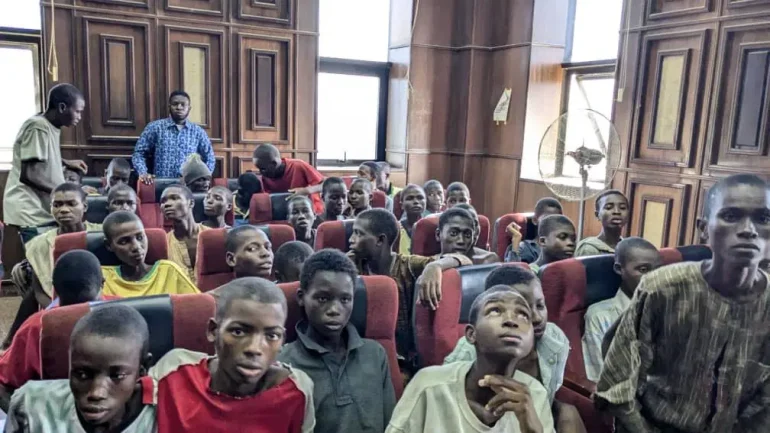In this report, Sunday Vanguard examines the events leading up to the November 1, 2024, arraignment of 76 individuals by the Federal Government, including 32 minors, for their participation in recent #EndBadGovernance protests. The case has sparked debate among senior legal experts on whether it was appropriate for a High Court judge to hear the pleas of minors, considering the legal protections in the 1999 Constitution and the Child Rights Act.
There is a split among legal professionals on Justice Obiora Egwuatu’s decision to proceed with the Federal Government’s 10-count treason charge against the protesters, including minors, involved in the 10-day protests in August. While there is consensus among these lawyers that charging protesters with treason is excessive, they differ on the suitability of arraigning minors in a High Court for such serious charges.
Some legal voices argue that the judge should have declined to hear the charges involving minors, citing that under Nigerian law, the Children’s Rights Act prohibits sentencing minors to capital punishment. They contend that minors should not face a High Court trial for capital offenses, as the Child Rights Act stipulates that minors should be handled by the child justice system rather than the criminal justice system. Additionally, the Act restricts any death penalty for individuals under 18.
Many states in Nigeria, including the Federal Capital Territory, have adopted the Child Rights Act. Since its implementation in 2003, states including FCT, Abia, Delta, and Kaduna have endorsed the Act, each adding legal weight against prosecuting minors in criminal courts. Some senior lawyers have even suggested that the National Judicial Council should review Justice Egwuatu’s handling of the case.


